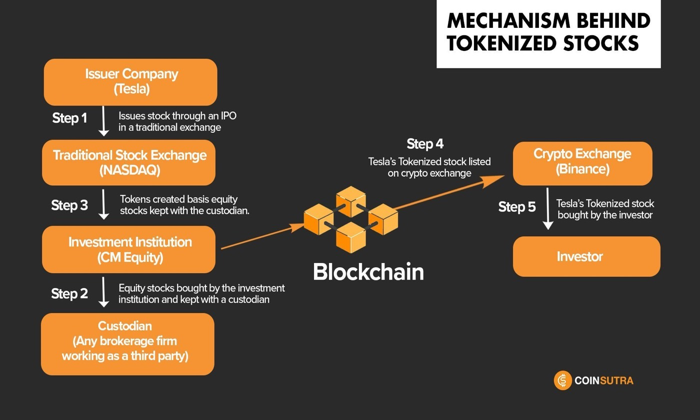Ethical finance in crypto is essential for guiding the evolution of the industry towards a more conscientious future. As cryptocurrencies shift from a speculative frenzy to a more grounded approach, integrating principles of crypto ethics can foster sustainable growth and innovation. Embracing decentralized finance can help ensure that technological advancements are aligned with the values of equity and accessibility. Moreover, with the rise of Web3 innovation, we can leverage ethical frameworks such as Islamic finance to reshape our financial systems for the better. Layer 2 solutions in this context can not only enhance efficiency but also amplify the positive impacts of ethical practices within the crypto space.
The concept of principled finance in the cryptocurrency realm is gaining traction as a crucial element of its progression. As the industry moves away from mere speculation, it is important to focus on fostering investment strategies that prioritize ethical considerations and social responsibility. By revisiting the foundational ideals of financial independence and fairness, we can create a decentralized finance landscape that resonates with a broader audience. Alternatives such as compliance with Islamic financial laws offer a framework that emphasizes integrity and tangible value amidst the rush for Web3 advancements. In the quest for scalable solutions, it is vital that we anchor our efforts in principles that improve societal welfare.
The Importance of Ethical Finance in Crypto Evolution
As the crypto industry undergoes a transformative period, the importance of ethical finance has never been more pronounced. Ethical finance in crypto emphasizes accountability, transparency, and social responsibility, enabling projects to not only generate profit but also address societal and environmental concerns. This dual focus not only attracts responsible investors but also fosters trust among users and builds a sustainable ecosystem that can thrive long-term.
Returning to ethical finance means prioritizing investments that do not just yield monetary gains but also contribute to positive societal impacts. When developers shift their narrative from short-term profits to long-term value creation, the entire crypto landscape can thrive on the foundation of ethics. This approach reflects core principles articulated in decentralized finance (DeFi) and encourages a new wave of projects that embody the spirit of inclusivity, reflecting the needs and aspirations of communities worldwide.
The Role of Layer 2 Solutions in Ethical Crypto Practices
Layer 2 solutions are pivotal for enhancing the scalability and efficiency of blockchain networks, yet they present unique challenges when it comes to maintaining ethical practices. While these technologies offer promising avenues for innovation, they often lead to an obsessive focus on metrics like transactions per second instead of considering the ethical implications of their deployment. Emphasizing ethical finance principles can reshape how these technologies are developed and used, ensuring that they serve the greater good rather than only serving investor interests.
Fostering an ethical mindset within the context of layer 2 solutions involves engaging communities in decision-making and ensuring their needs are at the forefront of technological advancements. This aligns with the true spirit of decentralized finance, where equitable access to financial tools is prioritized. By introducing layer 2 solutions designed with community input and ethical guardrails, the crypto space can create innovations that are not solely financially driven but that genuinely improve users’ experiences and societal welfare.
Inspiration from Islamic Finance for Web3 Innovations
Islamic finance offers a profound lesson for Web3, rooted in core principles like risk-sharing, ethical investment, and community focus. Drawing inspiration from centuries of ethical banking practices, crypto projects can adopt models that prioritize human welfare over mere speculation. This paradigm shift can lead to the creation of nuanced financial products that are aligned with the values of equity and social justice, steering the industry away from the pitfalls of rapid but hollow growth.
By integrating Islamic finance notions into crypto projects, developers can craft applications that are more than technological marvels—they can operate as instruments for real change. This enduring financial system teaches us to focus on tangible assets and community-oriented solutions, which can aid in bridging the gap between emerging markets and the advantages of blockchain technology. Thus, ethical finance in crypto is not just a trend; it is an opportunity to reshape the industry for the better.
Web3: A New Era of Ethical Innovation
Web3 represents a paradigm shift in how technology interacts with society, and this transformation must embrace ethical innovation at its core. The future of decentralized applications should not be defined only by technical capabilities or market valuations but also by their potential to address pressing social issues. Embracing ethical finance principles enables Web3 projects to forge genuine connections with users and communities, ensuring solutions that are viable and valuable across various demographics.
Ethical innovation in Web3 can lead to sustainable development, particularly in underserved regions. By focusing on creating decentralized financial systems that bypass traditional banking barriers, crypto can deliver essential services that promote financial inclusion and empowerment. Thus, reimagining Web3 through the lens of ethical finance can inspire projects that prioritize human welfare, ensuring that the benefits of blockchain are accessible to all.
Creating Meaningful Community Connections in Crypto
Building meaningful connections within the crypto community is essential to ensuring that innovations genuinely address the needs of its users. Many projects have fallen into the trap of excessive focus on monetary gains, losing sight of the importance of fostering diverse and supportive ecosystems. Enhancing community engagement is vital for the growth of ethical finance in crypto, allowing practitioners to create solutions that resonate with users and society at large.
Engaging communities through decentralized governance models helps in aligning project goals with the genuine needs of users. When individuals feel a sense of ownership and agency over the innovations they are part of, it cultivates an environment of trust and collaboration. This creates a resilient network that is better equipped to tackle social and economic challenges, showcasing the true potential of decentralized finance as a vehicle for positive change.
Redefining Success and Metrics in Crypto
The traditional metrics of success in crypto, such as market capitalization or transaction volumes, may not accurately reflect the impact of projects on community welfare. As the industry evolves, an emphasis on ethical finance will necessitate a reevaluation of what constitutes success. Projects should prioritize metrics that reveal genuine improvements to people’s lives, such as increased access to financial services or enhanced user experience in underbanked regions.
By redefining success in the context of ethical finance, the crypto industry can foster an environment conducive to social innovation. Highlighting the social value generated alongside financial returns encourages stakeholders to focus on creating products that benefit everyone. This holistic approach enhances the reputation of the crypto space, attracting responsible investors and advocates who are committed to building a sustainable future for decentralized technologies.
Long-term Value Creation in Blockchain Projects
In the fast-paced world of crypto, the allure of quick profits can be tempting, but the focus on long-term value creation is vital for the industry’s future. Projects that prioritize ethical finance are positioned to create sustainable ecosystems, enabling them to withstand market fluctuations while serving their communities effectively. By considering their broader impact, blockchain projects can cultivate trust and loyalty among users, which are essential for enduring success.
Building with an eye toward long-term outcomes requires a commitment to transparency and social responsibility. Each project should strive to create solutions that not only mobilize financial resources but also address critical issues like accessibility and equity. By emphasizing ethical finance principles, blockchain projects can ensure that their innovations lead to meaningful societal advancements, thus redefining what it means to succeed in the crypto landscape.
The Future of Decentralized Finance: Ethics at the Core
The future of decentralized finance hinges on the industry’s ability to integrate ethical considerations at every stage of development. As the concept of financial democracy grows, it’s imperative that the projects built within this ecosystem prioritize ethical finance to ensure they serve their intended purpose—empowering individuals and communities. Placing ethics at the core of DeFi will catalyze responsible practices and foster a sustainable economic model.
By establishing ethical guidelines and frameworks, the decentralized finance sector can attract a broader range of investors who are committed to socially responsible practices. This, in turn, can lead to an influx of innovative projects that prioritize community engagement and real-world utility, ultimately rendering speculative ventures less appealing. The focus should shift towards creating financial infrastructures that are both efficient and equitable, thereby allowing decentralized finance to reshape global economics positively.
Learning from Emerging Markets: Ethical Practices in Action
Emerging markets present a wealth of opportunities for the cryptocurrency sector to enact ethical finance principles in action. By observing how blockchain technology can transform lives in regions struggling with inflation, high remittance fees, and limited access to banking services, crypto projects can develop tailored solutions that meet the needs of these communities. Focusing on the unique challenges faced in these markets allows for innovation that addresses real-world issues rather than purely speculative ambitions.
Engaging with emerging markets requires a commitment to empathy and a deeper understanding of local contexts. By prioritizing ethical practices, crypto projects can help bridge the gap in financial services, fostering inclusivity and resilience among underserved populations. This approach not only enhances the reputation of the crypto industry but also highlights its potential as a force for good in the world.
Frequently Asked Questions
What is the role of ethical finance in crypto innovation?
Ethical finance plays a critical role in guiding crypto innovation by ensuring that projects prioritize long-term value, inclusivity, and community benefit over speculative gains. This approach can help restore the original vision of decentralizing power and democratizing finance, making blockchain solutions more effective and meaningful.
How can Web3 draw from Islamic finance principles for ethical crypto practices?
Web3 can learn from Islamic finance by adopting principles like risk-sharing and a focus on tangible assets, which can help cultivate ethical investment strategies within the crypto space. By prioritizing projects that foster community welfare and ethical outcomes, the crypto industry can create more impactful solutions.
Why are layer 2 solutions important for ethical finance in crypto?
Layer 2 solutions are crucial for ethical finance in crypto as they enhance scalability, accessibility, and efficiency of decentralized applications. However, these solutions must be developed with the intention of addressing real-world utility and improving lives, rather than merely generating speculative profits.
What ethical considerations should be taken into account when developing decentralized finance (DeFi) platforms?
When developing DeFi platforms, ethical considerations should include ensuring accessibility for underserved populations, creating transparent user experiences, and designing systems that prioritize community benefits over individual profit, thus aligning with the foundational ideals of ethical finance.
How can crypto ethics influence the future of financial systems?
Crypto ethics can profoundly influence the future of financial systems by promoting inclusivity, accountability, and sustainable practices. By embedding ethical principles into the core of crypto projects, the industry can address inherent inequalities and foster a healthier financial ecosystem.
What impact does ethical finance have on emerging markets in the context of crypto?
Ethical finance can significantly impact emerging markets by leveraging crypto technologies to lower remittance fees, provide access to financial services, and facilitate stablecoin transactions. This approach can empower individuals and businesses in regions with limited banking infrastructure.
In what ways can Web3 innovations create real-world utility beyond speculation?
Web3 innovations can create real-world utility by focusing on solving pressing issues such as high transaction fees, inflation, and access to finance. By designing products that directly address these challenges, the crypto industry can shift from speculative interest to meaningful economic improvements.
How can the crypto industry ensure it stays true to its ethical roots?
The crypto industry can ensure it remains aligned with its ethical roots by routinely reflecting on its goals, prioritizing community engagement, and focusing on initiatives that enhance transparency and fairness, thus staying committed to the foundational principles of decentralization and equity.
What lessons can the crypto sector learn from traditional ethical finance mechanisms?
The crypto sector can learn from traditional ethical finance mechanisms by understanding the importance of risk-sharing, community-focused investment, and rejecting speculative ventures. By integrating these lessons, crypto projects can achieve sustainable growth and foster public trust.
How can education in crypto ethics drive future innovations?
Education in crypto ethics can drive future innovations by cultivating a new generation of developers and investors who prioritize social impact and ethical considerations. This foundation can lead to the creation of products that fulfill real societal needs while upholding the values of decentralization and equity.
| Key Point | Description |
|---|---|
| Redefining Crypto | Crypto needs to return to ethical finance principles to drive meaningful innovation, moving away from speculative gains. |
| Value of Community | Community engagement in crypto should focus on shared ideals and solving real issues instead of just financial gain. |
| Impact on Emerging Markets | Crypto, especially Web3, must address issues like high remittance fees and inflation in regions like the Middle East and Africa. |
| Lessons from Ethical Finance | Islamic finance principles, with their focus on risk-sharing and ethical investment, can guide future innovations in crypto. |
| Defining Success and Innovation | Crypto projects need to focus on how they will improve lives rather than just financial metrics or popularity. |
Summary
Ethical finance in crypto is essential for guiding the industry’s evolution towards genuine innovation. As the landscape shifts away from speculation, it is crucial for crypto to realign with its founding principles of decentralization, equity, and ethics. By focusing on real-world applications and positive community impact, the blockchain industry can create lasting value. Embracing ethical finance not only addresses pressing global issues but also enriches the market with meaningful and sustainable solutions.
In the rapidly evolving landscape of cryptocurrency, ethical finance in crypto is emerging as a pivotal force for sustainable development. As the industry matures, it is essential to recapture the values of equity and inclusion that initially inspired its creation, ensuring that new crypto ethics shape innovative financial solutions. With the expansion of decentralized finance and the rise of Web3 innovation, projects must focus on building frameworks that prioritize ethical considerations alongside technical advancements. By integrating principles such as those found in Islamic finance and exploring layer 2 solutions, the crypto community can steer its trajectory toward meaningful societal impact. This approach not only reinforces the importance of responsible investment but also fosters a culture of collaboration and support within the crypto ecosystem.
The advent of cryptocurrency and blockchain technology has prompted discussions around responsible financial practices, often referred to as ethical finance. This concept emphasizes the moral implications of financial decisions within the digital realm, where ideas such as decentralized finance and innovative Web3 applications coexist. By examining frameworks from traditional models like Islamic finance, the sector can enhance its focus on responsible growth and community well-being. Furthermore, layer 2 solutions represent the technological advancements that can facilitate these ethical approaches, offering scalability while promoting fairness. As the crypto industry continues to innovate, it must also reflect on its broader responsibilities to empower individuals and communities across the globe.














